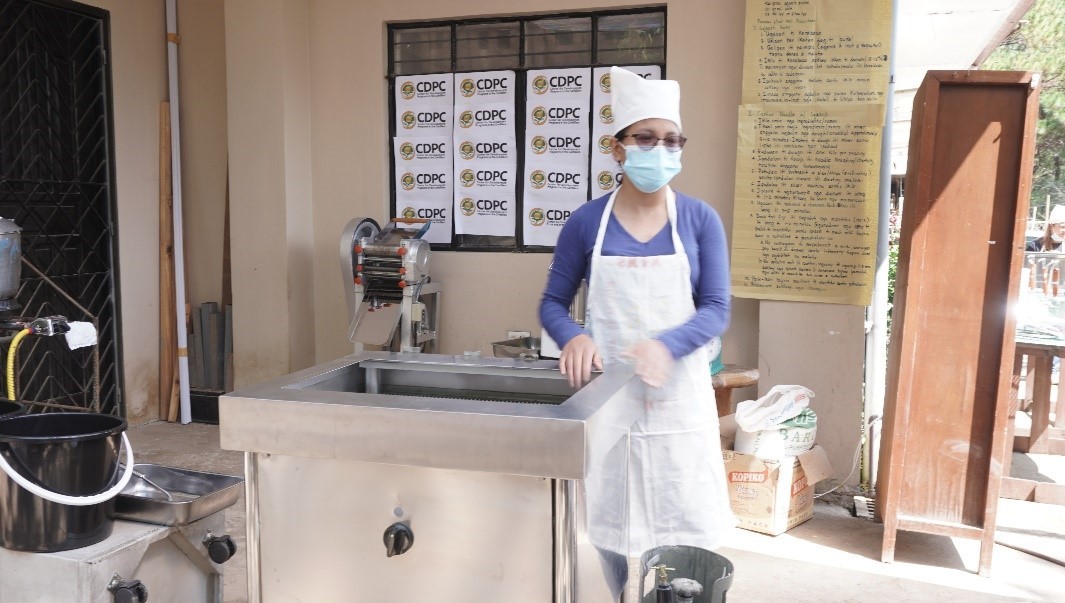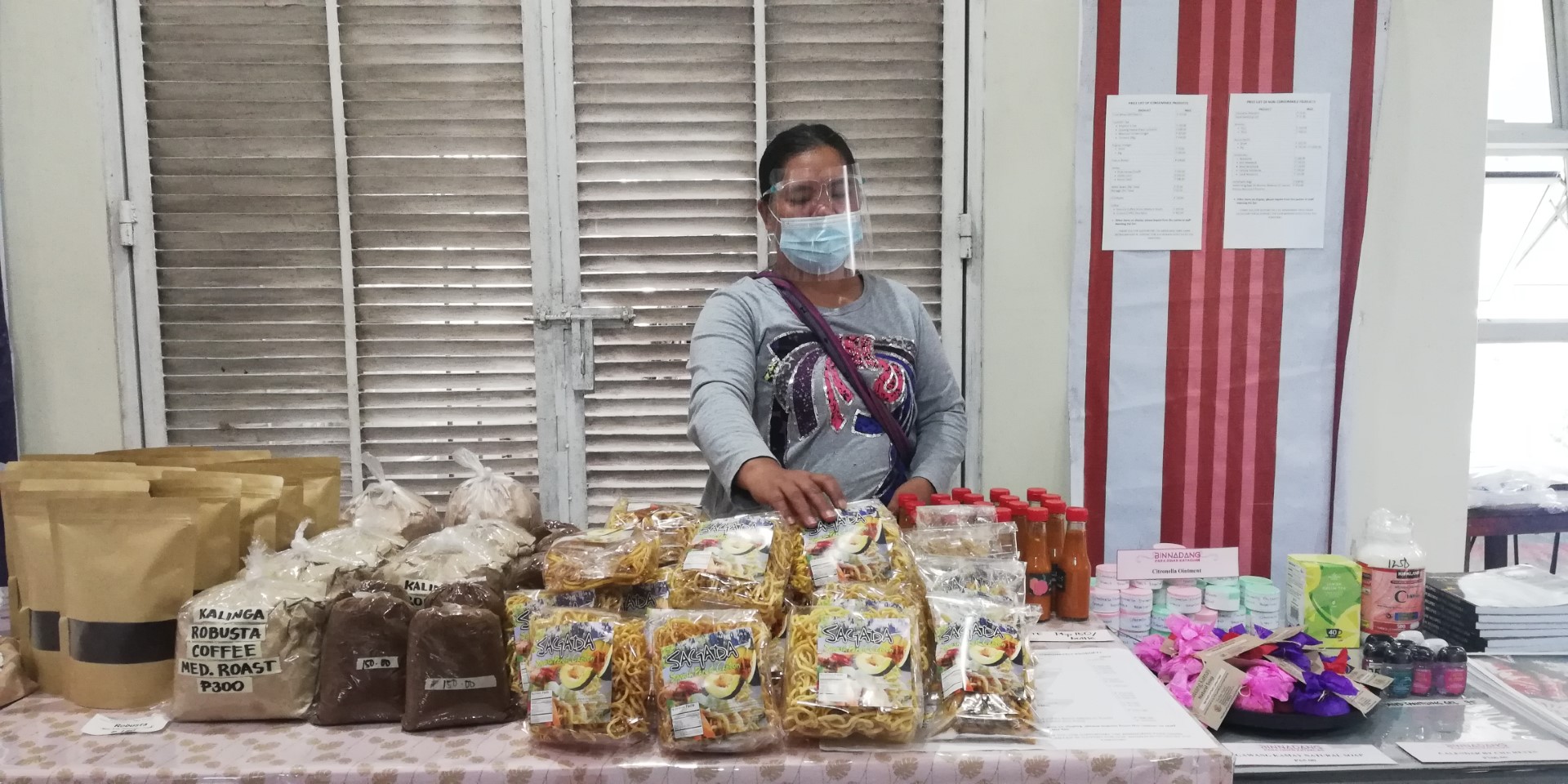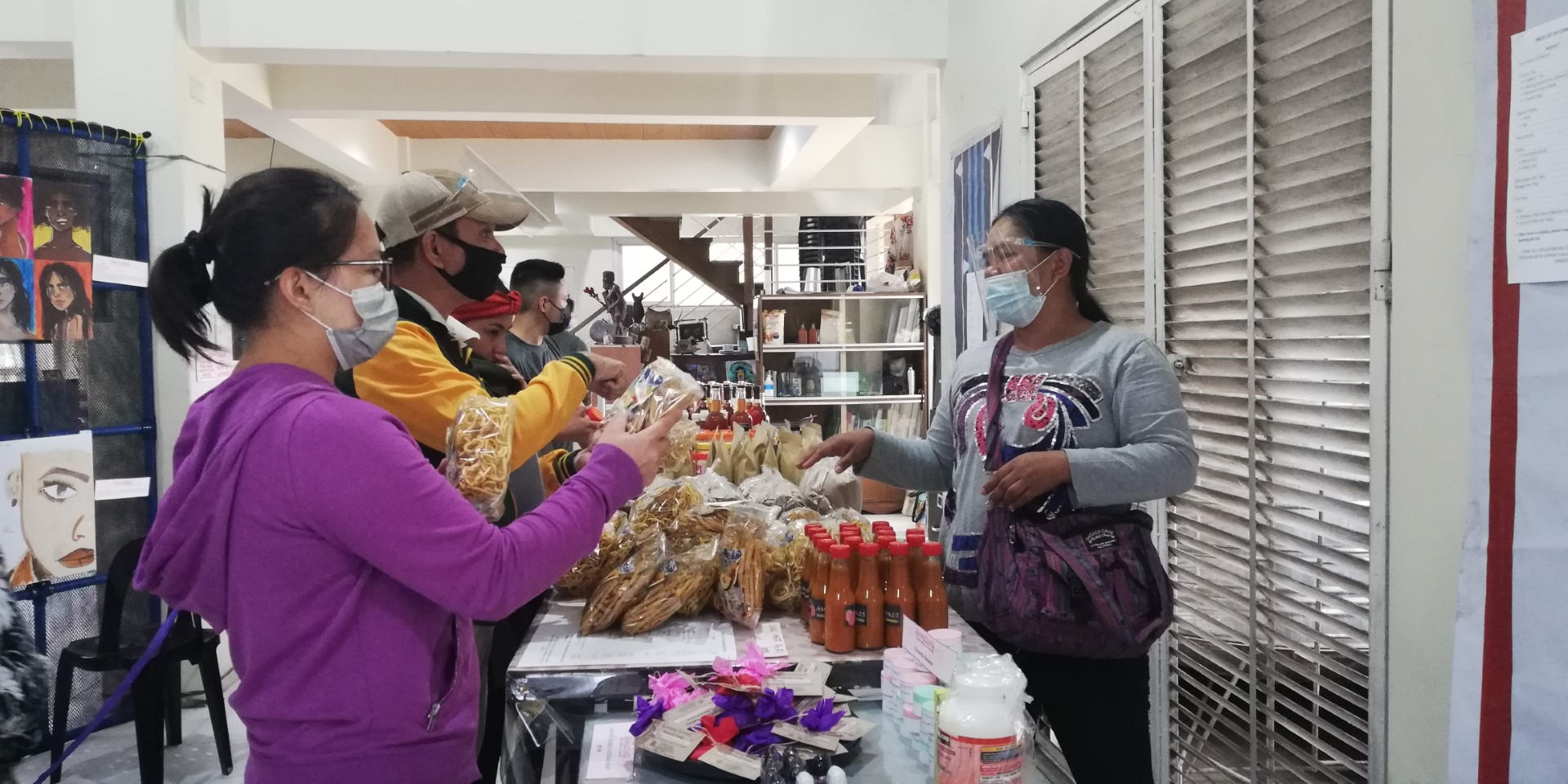Women ambulant vendors economically displaced by the Covid-19 lockdown received training on squash noodle production last March 7 from the Center for Development Programs in the Cordillera (CDPC). Following health and safety protocols, the training, the first in a planned series, provided five participants hands-on experience in processing and making squash canton noodles.
Ambulant vending has not been allowed in Baguio city since the start of the pandemic over a year ago. In their last dialogue with city officials last December, the vendors were told to look for other jobs. While the city government has also decided to return the Sunday pedestrianization of Session Road in November to boost business and restaurant dining in open air given health protocols, only two persons per ambulant vendor association are allowed to sell during this weekly event. Vendors also have to pay a permit fee of P250. Mary, a participant in the squash noodle training, said it is not enough as a source of livelihood if they can only sell twice or thrice in a month since they go on rotation to give a chance to all member vendors to sell. She shared her worries on where to get money to send her children to school, one of whom is now in college. The squash noodle production project thus serves as a supplemental livelihood for women ambulant vendors.

Yvonne Fichar, a former staff of the Montañosa Research and Development Center (MRDC), demonstrated the process of making squash noodles at the training. MRDC is an NGO partner of CDPC based in Sagada that launched the Sagada Squash Canton noodles in 2008. The Sagada Squash Canton noodles, according to a news article, was the very first variety of squash canton to hit the markets in Mountain Province and Cordillera region. CDPC has now extended this squash noodle production to Baguio City, and among the beneficiaries are the women ambulant vendors.

The packs of squash canton noodles produced by the women vendor trainees were displayed and sold at the Binnadang Para Isnan Kataguan Trade Fair of Cordillera Women’s Education Action Research Center (CWEARC). The trade fair features local products in support of women farmers, craft producers and food artisans from the provinces of the Cordillera and the city of Baguio. This is among the contributions of CDPC in celebration of International Working Women’s Day.
CDPC had earlier provided the same noodle production training to women in the mining community of Ucab in Itogon, Benguet. These women’s families lost their livelihoods when the national government enforced a ban on small scale mining after a string of devastating typhoons in 2018. In addition, CDPC engaged at least 10 women in a non-formal catering service project. But with the pandemic, activities involving mass gathering have been suspended including catering services. The squash noodle making project thus contributes to building the resilience of women whose livelihood has been adversely affected by the pandemic.


dav
